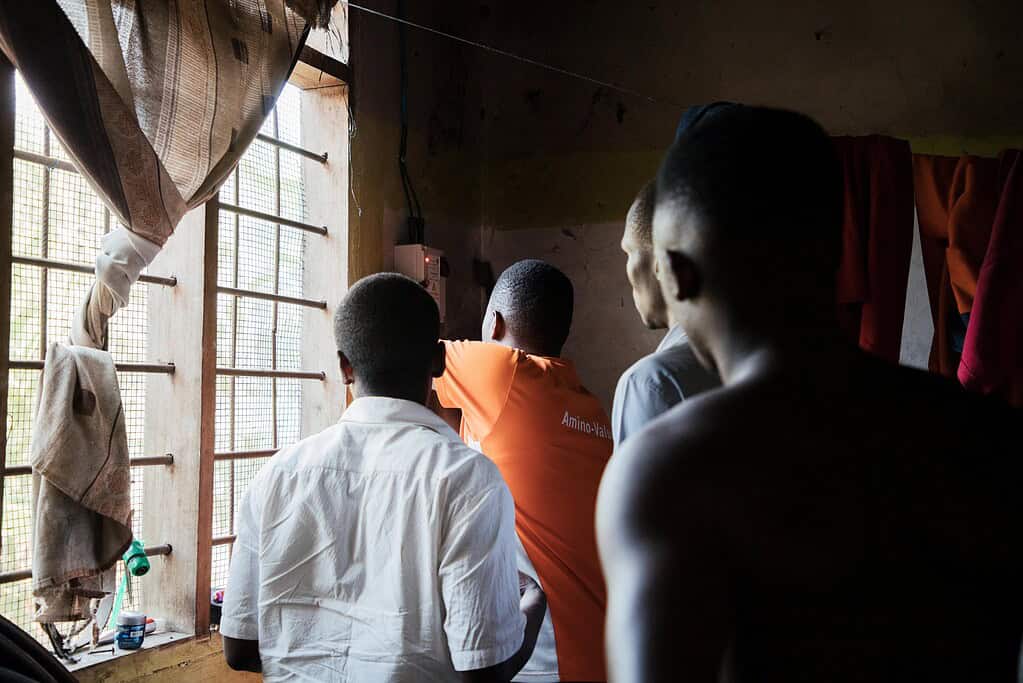The critical job skills of the future are not what you think
Jobs will look dramatically different by 2030. Core leadership skills like creativity, collaboration, and resilience will be pivotal.
- Blog
- Dignified jobs
- All Regions

The nature of work is changing and changing quickly. With the rapid emergence of new technologies, the way companies do business five years from now may bear little resemblance to the way they do business today.
At Acumen Academy, we see technology as an increasingly powerful means to amplify human potential. At the same time, we feel strongly that in a tech-enabled world, uniquely human skills like creativity, collaboration, flexibility, emotional awareness, and moral leadership are vital.
We’re not alone. In its recent Future of Jobs Report 2025, the World Economic Forum offered an in-depth look at how work is changing and the essential job skills that people need to transition into the future workforce. The report isn’t the opinion of one organization or writer. It’s a synthesis of perspectives from more than 1,000 leading global employers, which represent more than 14 million workers across 22 industries and 55 global economies. According to these employers, the top five core skills are, in order:
1) analytical thinking.
2) resilience, flexibility, and agility.
3) leadership and social influence.
4) creative thinking.
5) motivation and self-awareness.
As the report states, “This combination of cognitive, self-efficacy, and interpersonal skills within the top five emphasizes the importance ascribed by respondents to having an agile, innovative, and collaborative workforce, where both problem-solving abilities and personal resilience are critical for success.”
The message is clear: We need to prepare people to be creative, empathetic, collaborative, and resilient — as only humans can be. Building a more sustainable and equitable future depends on it.
How to upskill effectively: community is key
If we know the skills that people will need and that the future demands, how do we teach these skills effectively? If you work for an academic institution, a business school, an L&D department, an accelerator, or entrepreneurial fellowship, this is the sort of challenge you stay up late thinking about and wake up early inspired to address.
Some people think of creative thinking, collaboration, flexibility, and moral leadership as “soft skills.” We call them “harder skills” because they are both durable and challenging to master. Social impact leaders must develop the ability to fail and learn from failure, the resilience and determination to pick themselves up and try again.
After working with entrepreneurs around the globe, we have learned that leaders learn, retain, and sustain these skills most effectively when they’re part of a strong community. Through our Acumen Fellowship, we cultivate this community by bringing together founders, CEOs, and leaders focused on solving some of the world’s most intractable problems.
In cohorts of roughly 20, participants delve deeply into frameworks and tools central to building their capacity as leaders. Through online workshops and in-person sessions, they learn how to acknowledge and navigate complexity in decision making and power dynamics. They learn how to tell their stories with authenticity. And in the final immersive session, they spend three days discussing a range of classical and contemporary texts, reflecting on core human values, debating different perspectives, and examining their own work in a broader historical context.
Upon completing the Fellowship, they join a community of accountability partners with whom they stay connected for life. Knowing they have someone they can reach out to, who will help them to problem-solve, or just stay on the path, has proven immensely valuable. Nearly 85% of our community is still focused on solving problems of poverty years or even decades after they began.
Looking forward
This work is about more than just education. It’s about equipping individuals and organizations with the tools and connections they need to drive lasting, ethical, and effective change.
As we navigate this journey, we welcome insights and collaboration from others who are exploring similar questions. How are you thinking about leadership and skill-building in this era of rapid transformation? We’d love to learn from your experiences as we build a future that works for everyone.